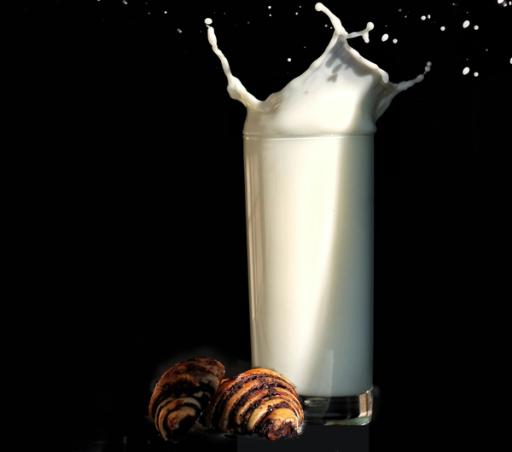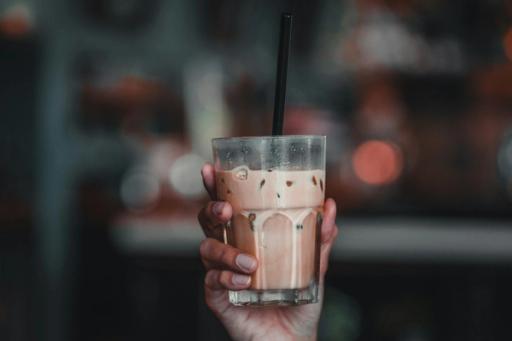
Intermittent fasting can be a great way to reach your weight loss goals, but it’s not without challenges. For many people, deciding what to eat during their eating window can be overwhelming, especially if they’re trying to maximize the benefits of intermittent fasting, like fat loss and muscle preservation. If you’re one of these people and enjoy drinking protein shakes, you may wonder, can you drink protein shakes while intermittent fasting? While protein shakes can be a great source of nutrition, they can also break your fast if you’re not careful. How Long Does Reverse Dieting Take? This article will help you determine if protein shakes are right for you and your intermittent fasting goals. Consider using a calorie tracker like Cal AI to help you reach your intermittent fasting targets. This simple tool can help you stay on track with your goals and make the process less overwhelming.

If you practice intermittent fasting, look for ways to boost your results. Enter the high-protein diet. Given protein’s role as a macronutrient that promotes satiety while preserving and building muscle mass, increasing your protein intake during intermittent fasting could improve its effects. The U.S. Department of Agriculture’s Dietary Guidelines for Americans recommends that 10 to 35 percent of an adult’s daily calorie intake come from protein, with a recommended daily allowance of 46 to 56 grams (g), based on age and sex.
That said, the definition of a high-protein diet tends to vary. Some studies say that 20 to 30 percent of energy intake from protein is considered high-protein. Other research uses a marker of 35 percent of energy intake from protein. Research shows that a high-protein diet can improve diet quality, prompting people to eat less sugar and refined grains. This can help with weight loss for those also on a calorie-restricted diet.
Protein also helps preserve muscle mass, which, according to the National Institute on Aging, peaks in our mid-thirties and then declines afterward. Retaining muscle enables you to:
A study shows that weight loss from intermittent fasting comes from both fat and muscle mass. As your weight goes down, minimizing muscle loss becomes more important. That’s where dietary protein comes in.
Research shows that people who combined intermittent fasting with a protein-pacing diet for eight weeks lost about 6.5 pounds and twice as much fat and visceral fat as those following a calorie-restricted diet.
Also notable: People in the protein-pacing group, who consumed 35 percent of their calorie intake from protein evenly throughout the day, were better able to increase fat-free mass (including muscle and bone) than the calorie-restricted group. The authors say dietary protein “played an instrumental role” in improving body composition.
For this reason, plan your meals well to ensure you get enough protein, especially if you’re practicing intermittent fasting. “If you’re getting high-quality protein into your meals, you can reduce the likelihood you’ll lose muscle,” says Alyssa Smolen, a registered dietitian nutritionist based in Essex County, New Jersey.
Research shows that higher protein diets that reduce body weight and preserve muscle mass require a protein intake between 1.2 and 1.6 g per kilogram (kg) of body weight. For example, weighing 70 kg (154 pounds), you’d aim for 112 g of protein daily. That’s about 30 g of protein per meal (if you have four meals total).
Depending on your eating window, this can be difficult. To ensure that your eating plan aligns with your goals, speak with a registered dietitian who can help you create meals that will hit your targets while you practice intermittent fasting.
Be sure to look at your diet holistically. “High protein intake can support muscle retention during fasting, but balancing your food intake for nutrition and with adequate hydration is important,” says Vandana Sheth, a registered dietitian nutritionist based in Los Angeles.

You have two distinct periods when intermittent fasting: the fasting window and the eating window. During the fasting window, you abstain from all food and caloric beverages. This is when your body can reap the purported health benefits of fasting, such as reduced inflammation.
The eating window is when you can consume protein shakes and other foods. Depending on your fasting protocol, this period can last from a few hours to several days.
Feel free to sip protein shakes while intermittent fasting, but only during your eating window. Otherwise, you’ll break your fast. Any food or drink with calories will break your fast, leading to insulin production that kicks the body out of the desired anti-aging “autophagy” and fat-burning “ketosis” phases.
“Many protein shakes have hundreds of calories and can almost be considered a meal replacement or snack,” says Katherine Brooking, RD, a registered dietitian and co-founder of the nutrition news company Appetite for Health in San Francisco. Remember that protein powder (even mixed with plain water) has calories and macronutrients. Other supplements are less likely to break a fast and may be consumed during your fasting window.
Those include:
As mentioned above, having an appropriate protein intake is essential when fasting, especially if you are also trying to lose weight or maintain lean mass.
Below are the best times to consume protein shakes while intermittent fasting.
Some people go overboard with their food once they break their fast, leading to a somewhat unhinged eating pattern or bloating. This could also be why you cannot lose weight on intermittent fasting.
If I do this, protein shakes might be a great way to break a fast and prevent me from overeating. Breaking an intermittent fast with a protein shake can help stabilize my hunger and prepare me for a more balanced diet in subsequent meals.
When fasting, protein shakes can be a quick and healthy snack that helps you achieve your daily protein target more easily. Mix your protein powder with water to minimize your calorie intake if you aim to lose fat.
To build muscle mass, mix it with your favorite milk to provide more:
Protein shakes can be a good meal replacement, especially if mixed with nutrient-dense ingredients or other nutrient-rich foods. They should not be a daily meal replacement. Protein shakes are great if consumed occasionally at mealtimes instead of food.
When intermittent fasting, you can have a protein shake straight after a workout during your eating window. If you work out hard before your feeding window, you will need to wait for that feeding window to start to have your shake.
Relying solely on protein shakes during fasting is not recommended, as it can lead to nutrient deficiencies over time. Most protein shakes provide mainly protein and lack essential:
If protein shakes are used as a sole source of nutrition, it should only be for the short term and supervised by a qualified dietitian or nutritionist.
A better option is to choose nutritionally balanced meal replacement shakes or prepare homemade shakes enriched with:
Even with these alternatives, whole foods should remain the foundation of your diet, particularly when following an intermittent fasting protocol.
Including protein shakes in your intermittent fasting plan supports your weight loss goals. The IF and protein shakes combo is like rocket fuel for your weight loss journey. IF helps create caloric restriction while protein enhances satiety, making you feel full for longer. Considering the thermic effect of protein, your body has to spend more energy to digest it, which translates to increased calorie burning.
While IF does promote weight loss, eating too many calories during your eating window can result in weight gain instead of weight loss. The same goes for protein shakes. Too many calories in your protein shake can also lead to weight gain.

Intermittent fasting can help you:
How you approach your eating windows can make all the difference. During intermittent fasting, choose nutrient-dense foods for your eating window.
For optimum health, eat balanced meals with plenty of quality:
This will provide you with all the nutrients your body needs. Focus on whole foods and minimize processed ones.
Food consumption typically breaks a fast, so let’s focus on what protein-rich foods are best to include during the eating window. You can include a variety of protein sources such as:
Protein shakes are a convenient and easy to bridge nutritional gaps and meet your recommended daily protein intake. Depending on your eating windows, you can have them for breakfast, lunch, or even dinner. To increase your protein intake, you can also include protein snacks such as nuts, boiled eggs, peanut butter, hummus, and yogurt.
Here are intermittent fasting protein shakes you can enjoy while you are eating. These protein-packed treats also contain healthy fats. Ingredients such as spinach and seeds offer fiber, vitamins, and minerals. Adding coconut water gives you electrolytes. You can add coffee to your protein drink to make a pre-workout shake that boosts your energy and workout performance.
Ingredients: 1 cup of almond or coconut milk 1 tablespoon peanut butter 1 scoop of whey protein powder
Method:
Ingredients: 1 scoop plant-based protein powder 1 cup coconut water 1 cup spinach 1/2 banana
Method:
Blend all ingredients for a refreshing, nutrient-rich vegan protein shake.
Ingredients: 1 scoop protein powder 1-2 tsp of coffee powder 1 cup unsweetened almond milk 2 tablespoons chia seeds
Method:
Cal AI transforms calorie tracking with cutting-edge AI technology. Snap a photo of your meal, and we'll do the rest.
Our app combines your phone's depth sensor with advanced AI models to:
With 90% accuracy on visible foods and multiple tracking options like barcode scanning, food label recognition, and manual description for complex items like smoothies, we’ve made nutrition tracking effortless. Gone are the days of tedious manual logging with calorie-tracking apps. Whether scanning a full meal or a quick snack, Cal AI gives you accurate nutritional information in under 15 seconds. Plus, our AI learns from your feedback, continuously improving its accuracy.
Stay on track with personalized insights and smart reminders. Cal AI makes achieving your fitness goals simpler than ever. Today, with Cal AI’s AI calorie tracker, you can track your calories with your camera.